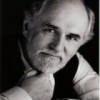Browse career insights from licensed psychologists, therapists, and counselors across diverse specializations. Our experts hold PhDs, PsyDs, and master's degrees and bring decades of combined clinical experience. Filter by specialty to find relevant guidance for your psychology career path.
Choosing a career path in psychology can feel overwhelming. You're not just selecting a major, you're committing to years of education and a profession that will shape your life. That's precisely why hearing directly from professionals who've walked this path is invaluable.
Our expert network includes licensed psychologists, marriage and family therapists, clinical social workers, and counselors across every primary specialization. They've shared their experiences, challenges, and insights to help you make informed decisions about your psychology education and career. Whether you're deciding between clinical and counseling psychology, wondering if you need a PhD or PsyD, or trying to understand what daily practice really looks like, our experts offer the real-world perspective you won't find in course catalogs.
Table of Contents
Why Our Expert Network Matters
Psychology isn't a one-size-fits-all career. The difference between a forensic psychologist and an industrial-organizational psychologist isn't just their title; it's their entire daily experience, work environment, educational path, and client population. Before you invest years in graduate school, you need to understand what you're really getting into.
Our featured experts represent the diversity of psychology careers available today. They work in hospitals, private practices, schools, corporations, government agencies, and research institutions. Some focus on children, others on geriatric populations. Some conduct therapy, while others design workplace interventions or consult on criminal cases.
What makes our expert network unique:
- Verified Credentials: Every featured expert holds appropriate state licensure and advanced degrees (master's through doctoral level)
- Real-World Experience: Our experts bring decades of collective clinical practice, research, and teaching experience
- Diverse Specializations: Coverage across clinical, counseling, school, industrial-organizational, forensic, health, and social work fields
- Honest Perspectives: Experts share both the rewards and challenges of their career paths
- Educational Pathways: Learn the exact degrees, certifications, and training each expert completed
Understanding the credential landscape is critical. Our experts demonstrate various educational routes: some earned PhDs with research focus, others pursued PsyDs for clinical practice, and many hold master's-level credentials like LMFT or LCSW. Their stories show there isn't one "right" path, but rather multiple viable routes to meaningful psychology careers.
Expert Directory by Specialization
Browse our experts by specialization to find professionals whose career paths align with your interests. Each expert interview includes their educational background, career trajectory, daily responsibilities, and advice for aspiring professionals.
Clinical Psychology Experts
Clinical psychologists assess, diagnose, and treat mental health disorders across diverse settings. Our clinical psychology experts work in hospitals, outpatient clinics, private practices, and research institutions. They hold doctoral degrees (PhD or PsyD) and state licensure.
What you'll learn from our clinical psychology experts: Differences between PhD and PsyD programs, internship and postdoctoral requirements, specialization options (child, adult, neuropsychology), private practice vs. institutional settings, and realistic salary expectations at different career stages.
If you're considering becoming a clinical psychologist, our experts outline the rigorous path, which includes 5-7 years of graduate training, supervised clinical hours, and licensure examinations. They discuss evidence-based treatment approaches, ethical dilemmas in practice, and the emotional demands of clinical work.
Counseling Psychology & Mental Health Counseling Experts
Counseling psychologists and mental health counselors focus on helping clients navigate life challenges, relationship issues, and mental health concerns. While counseling psychologists typically hold doctorates, licensed mental health counselors often practice with master's degrees.
Featured specializations include: Marriage and family therapy, substance abuse counseling, career counseling, school counseling, and community mental health. Our experts explain the distinction between counseling psychology and clinical psychology, licensure paths for different credential levels, and opportunities for specialization.
Explore diverse counseling psychology careers through our expert interviews. They share insights on building a private practice, working in community mental health centers, and the growing demand for telehealth counseling services.
School Psychology Experts
School psychologists work in educational settings, conducting assessments, developing interventions, and supporting student mental health and academic success. Most states require a specialist-level degree (EdS) or doctorate.
Our school psychology experts discuss: Assessment and evaluation practices, IEP development, crisis intervention in schools, collaboration with teachers and administrators, and the unique challenges of serving children and adolescents in educational environments.
Industrial-Organizational Psychology Experts
I-O psychologists apply psychological principles to workplace issues, including employee selection, training, leadership development, and organizational culture. This growing field offers opportunities outside traditional clinical settings.
Learn about: Transitioning from academic training to corporate environments, consulting vs. internal positions, research methodologies in organizational settings, and salary potential in corporate psychology roles (often higher than clinical positions).
Social Work Experts (MSW, LCSW)
Clinical social workers provide mental health services, case management, and community resources. Our social work experts hold Master of Social Work (MSW) degrees and clinical licensure (LCSW), and they work in medical settings, schools, child welfare, and private practice.
Key topics covered: MSW program selection, field placement experiences, differences between BSW and MSW career opportunities, LCSW licensure requirements, medical social work, psychiatric social work, and school social work specializations.
Understanding the psychology licensure requirements by state is essential for career planning. Our experts break down the licensing process for their respective states and specializations.
Marriage & Family Therapy Experts
Licensed Marriage and Family Therapists (LMFTs) specialize in relationship dynamics and family systems. With master's-level training, LMFTs conduct couples therapy, family therapy, and individual therapy through a relational lens.
Expert insights include: MFT program accreditation, clinical hour requirements, developing a couples therapy practice, working with diverse family structures, and ethical considerations in relationship therapy.
Forensic Psychology Experts
Forensic psychologists work at the intersection of psychology and the legal system, conducting evaluations for courts, consulting on criminal cases, and testifying as expert witnesses. This specialized field requires doctoral training and often additional forensic certification.
Health Psychology Experts
Health psychologists address psychological factors in physical health, chronic illness, and medical treatment. They work in hospitals, research centers, and academic settings, focusing on behavior change, pain management, and health promotion.
Other Specializations
Our expert network also includes professionals in neuropsychology, child psychology, geropsychology, sport psychology, community psychology, and emerging fields like digital mental health and psychotherapy integration.
How to Use Expert Insights for Your Career Decisions
Don't just read one interview and decide your path. Here's how to strategically use our expert network:
- Compare Specializations: Read interviews from at least 3-4 different specializations. You might discover a field you hadn't considered.
- Focus on Educational Requirements: Note the specific degrees, certifications, and training each expert completed. This helps you plan your own educational roadmap.
- Assess Work-Life Balance: Many experts discuss schedule flexibility, earning potential, and emotional demands. Consider what lifestyle works for you.
- Understand Licensure: Pay attention to licensure requirements in your state. Experts often mention their licensure journey.
- Evaluate Setting Preferences: Do you want to work in hospitals, schools, private practice, or corporate environments? Experts describe their work settings in detail.
- Consider Financial Reality: Experts share salary information and student debt experiences, so factor economics into your decision.
- Look for Day-to-Day Descriptions: The best insights come from what experts actually do daily, not just their job title.
Understanding Credentials: A Quick Reference
Psychology and mental health credentials can be confusing. Here's what the letters after our experts' names mean:
| Credential | Degree Level | Typical Career Paths | Licensure Required |
|---|---|---|---|
| PhD (Clinical/Counseling Psychology) | Doctoral (5-7 years) | Licensed Psychologist, Researcher, Professor | Yes (State-specific) |
| PsyD (Doctor of Psychology) | Doctoral (4-6 years) | Licensed Psychologist, Clinical Practice | Yes (State-specific) |
| MSW/LCSW (Master of Social Work/Licensed Clinical Social Worker) | Master's (2 years + clinical hours) | Therapist, Case Manager, Medical Social Worker | Yes for clinical practice |
| LMFT (Licensed Marriage & Family Therapist) | Master's (2-3 years + clinical hours) | Couples/Family Therapist, Private Practice | Yes (State-specific) |
| LPC/LMHC (Licensed Professional Counselor/Licensed Mental Health Counselor) | Master's (2-3 years + clinical hours) | Mental Health Counselor, Substance Abuse Counselor | Yes (State-specific) |
| EdS (Education Specialist in School Psychology) | Specialist (3 years) | School Psychologist | Yes (State/District certification) |
Most Popular Expert Interviews
Start with these highly-viewed interviews that cover common career questions:
- "Breaking Into Clinical Psychology" - A PhD psychologist discusses the application process, internship matching, and first years in practice
- "LMFT vs. LCSW: Which Path Is Right for You?" - Two experts with different credentials explain their career choices
- "Private Practice Reality Check" - Multiple therapists discuss building a successful private practice
- "PhD vs. PsyD: The Real Differences" - Experts from both training models share their experiences
- "Master's-Level Careers in Psychology" - Counselors and therapists explain career opportunities without a doctorate
Frequently Asked Questions
How are psychology experts on this site vetted?
All featured experts hold appropriate state licensure and advanced degrees in their respective fields. We verify credentials, professional affiliations, and areas of specialization before featuring any expert. Our experts represent diverse practice settings, geographic locations, and years of experience to provide comprehensive career perspectives.
What credentials should I look for when choosing a psychology career path?
The proper credentials depend on your career goals. Doctoral degrees (PhD or PsyD) are required to practice as a licensed psychologist and use the title "psychologist." Master's-level credentials (LMFT, LCSW, LPC) allow independent practice as a therapist or counselor in most states. Consider work setting, scope of practice, time to licensure, and salary expectations when choosing your path. Our experts share their credential decisions and outcomes.
How do I choose between clinical psychology and counseling psychology?
While both involve therapy and assessment, clinical psychology traditionally focuses more on severe mental illness and psychopathology, while counseling psychology emphasizes wellness, development, and life transitions. However, these distinctions have blurred significantly. The real difference often comes down to program philosophy, faculty research interests, and internship sites. Read interviews from both clinical and counseling psychologists to understand their day-to-day work, which is often quite similar despite different training labels.
Can I become a therapist with a master's degree?
Yes. Licensed Clinical Social Workers (LCSW), Licensed Marriage and Family Therapists (LMFT), Licensed Professional Counselors (LPC), and Licensed Mental Health Counselors (LMHC) all practice psychotherapy with master's degrees. These paths typically require 2-3 years of graduate school plus 2-3 years of supervised clinical experience before independent licensure. Many of our featured experts practice at the master's level and discuss their career satisfaction, earning potential, and scope of practice.
What's the realistic salary range for psychology careers?
Salaries vary widely by specialization, setting, and geographic location. Our experts discuss real numbers: master's-level therapists in community mental health might start at $45,000-$55,000, while established private practice therapists earn $ 70,000-$100,000 or more. Licensed psychologists with doctorates typically earn $75,000-$120,000, depending on setting, with neuropsychologists and industrial-organizational psychologists often earning significantly more. Private practice, consulting, and corporate positions generally pay more than community mental health or school settings, but offer different benefits and work-life balance. Experts share their salary progressions and financial realities.
How long does it really take to become a fully licensed psychologist or therapist?
For licensed psychologists (PhD or PsyD): 5-7 years of graduate school, 1 year predoctoral internship, 1-2 years postdoctoral supervised experience, and passing the EPPP exam, totaling 7-10 years post-bachelor's degree. For master's-level therapists (LMFT, LCSW, LPC): 2-3 years graduate school, 2-3 years supervised practice (often while working), and passing state exams, totaling 4-6 years post-bachelor's. Our experts discuss their timelines and the financial implications of extended training.
Is private practice financially viable, or is that just a myth?
Private practice viability depends on location, insurance panel decisions, specialization, and business acumen. Our private practice experts are candid: it typically takes 2-3 years to build a sustainable practice, requires business skills beyond clinical training, and involves managing insurance, marketing, and administrative tasks. However, many experts report greater autonomy, higher earning potential, and better work-life balance once established. Some maintain part-time institutional work while building their practice. They share both success stories and cautionary tales.
Find Your Path: Explore Programs
Ready to take the next step in your psychology career journey? Our experts' educational paths can guide your program selection.
Browse accredited online psychology degree programs that align with the credentials discussed by our experts. Whether you're pursuing a bachelor's, master's, or doctoral degree, we partner with accredited universities offering flexible programs for working professionals.
Programs by career path:
- Clinical Psychology (PhD/PsyD programs)
- Counseling Psychology (MA/MS/PhD programs)
- Marriage and Family Therapy (MFT programs)
- Social Work (MSW programs)
- School Psychology (EdS programs)
- Industrial-Organizational Psychology (MA/MS/PhD programs)
Key Takeaways
- Multiple paths exist: PhD, PsyD, and master's-level credentials each lead to meaningful psychology careers with different training requirements, timelines, and career outcomes.
- Specialization matters: Daily work, settings, and satisfaction vary dramatically across specializations. Clinical psychology in a hospital differs greatly from I-O psychology in corporate settings.
- Credentials determine scope: Doctoral degrees are required for independent practice as a psychologist, while master's-level licenses (LMFT, LCSW, LPC) permit independent therapy practice in most states.
- Real-world experience is invaluable: Learning from professionals who've navigated licensure, built practices, and managed career challenges helps you make informed decisions before committing years to training.
- Plan for the long haul: Full licensure takes 4-10 years post-bachelor's, depending on path. Understanding the timeline and financial commitment is essential for sustainable career planning.
Ready to Start Your Psychology Career Journey?
Let our experts' insights guide your educational decisions. Explore accredited psychology programs that match your career goals.













































